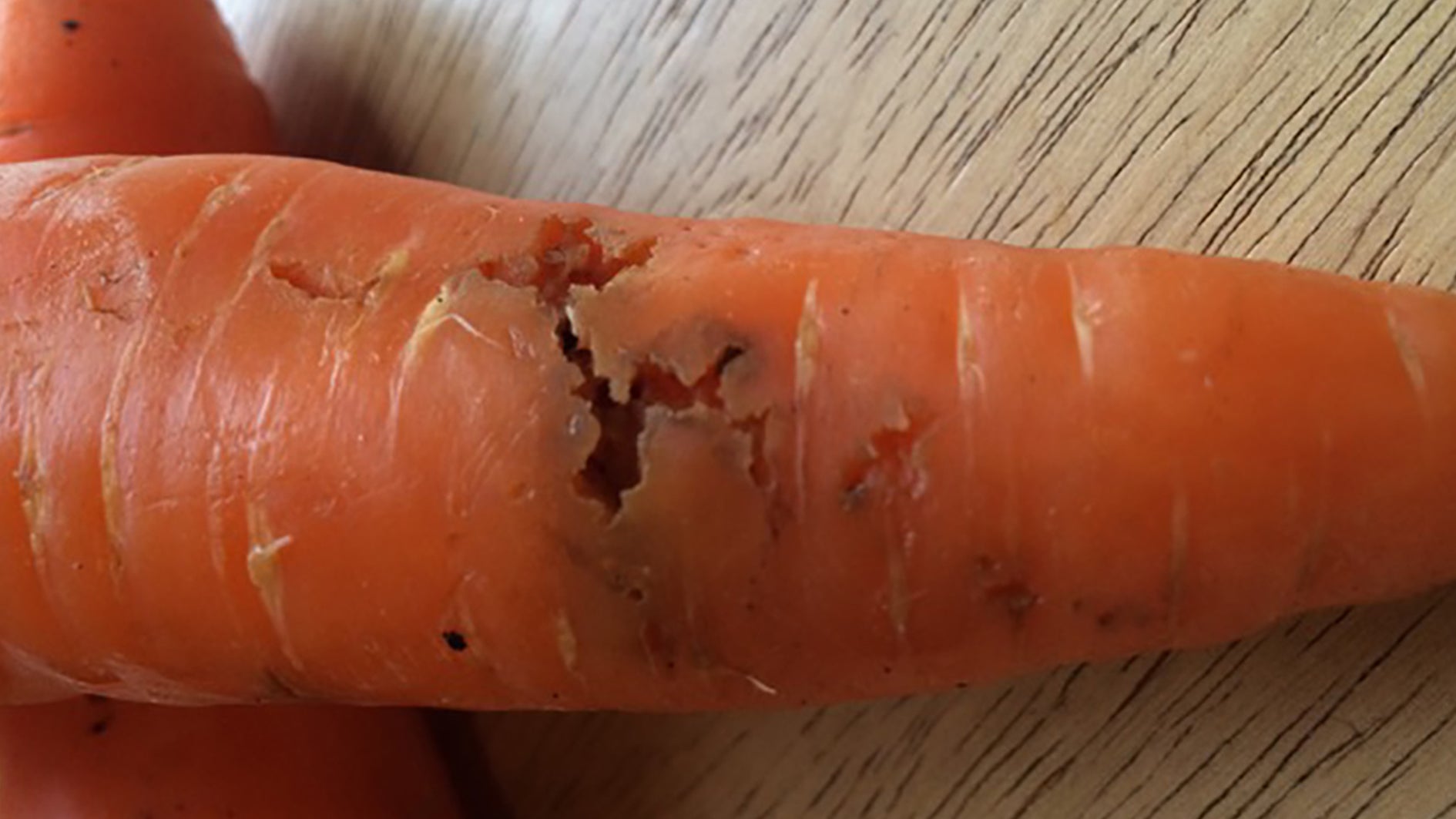
Carrot Rust Fly
08 Nov, 2021
The adult flies are black and glossy, around 5-8mm long, with a thin body, shiny wings and yellow legs. They lay their eggs close to the roots of the host plant in spring. Once hatched, the larvae make their way down into the soil to eat the roots, which causes damage to the crop.
Damaged plants show a dark, ‘rusty’ discolouration around the areas which have been eaten. Other symptoms include stunted growth, forking or bulbus growths. If younger plants are affected, they may wilt or the crop may fail. In many cases, damaged plants become inedible.
Prevention
Rotate all root vegetable crops annually to help prevent repeated crop infection.
Keep the area free of weeds and use bug net to keep adult flies away from crops. Companion planting can also be effective, so plant onions, garlic, marigolds nearby to help deter adult flies.
Feed and water plants well, as pest insects are more attracted to weakened or stressed plants.
Treatment
There is currently no chemical treatment for Carrot Rust fly. Prevention is better for control of this pest.